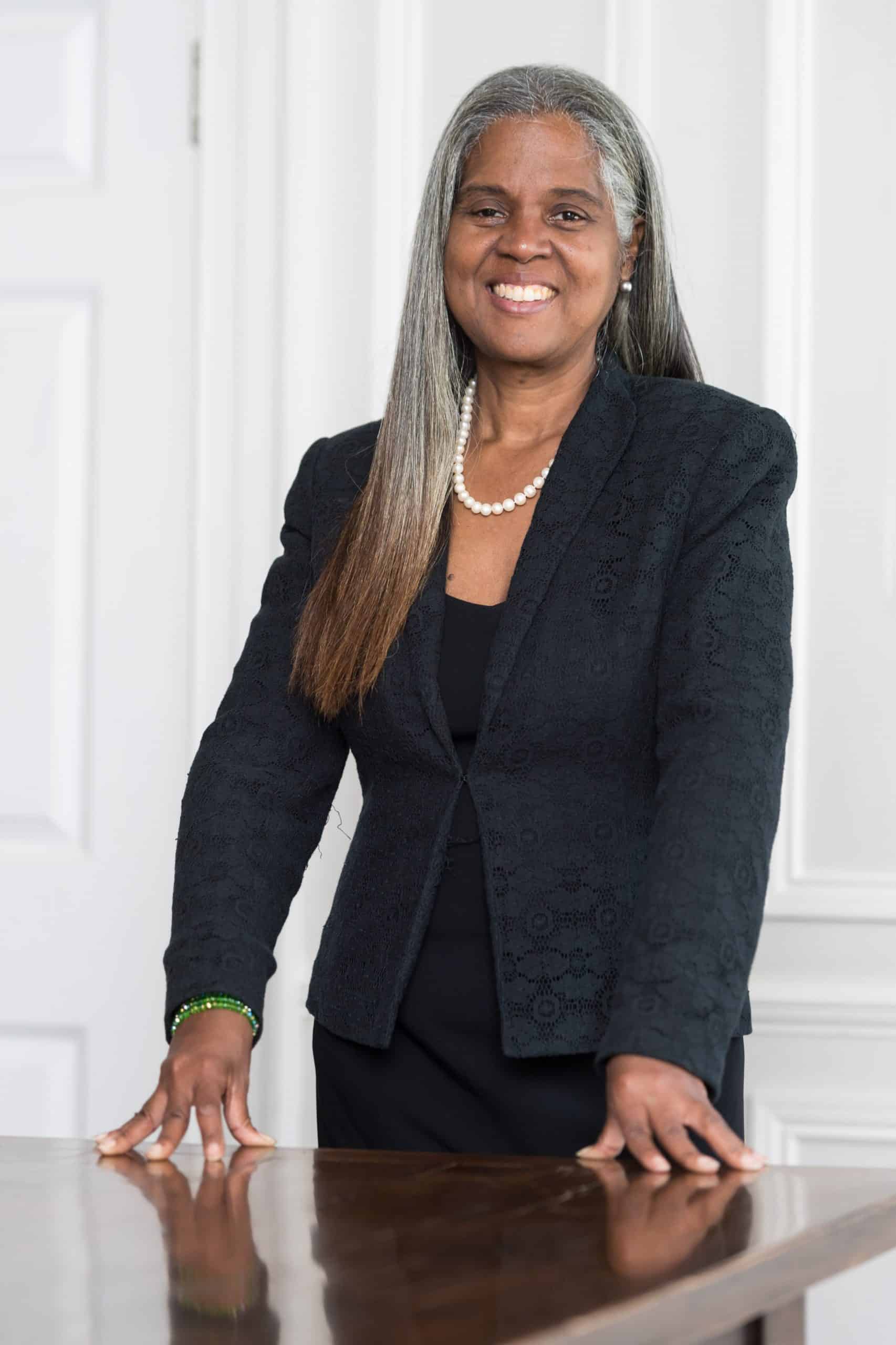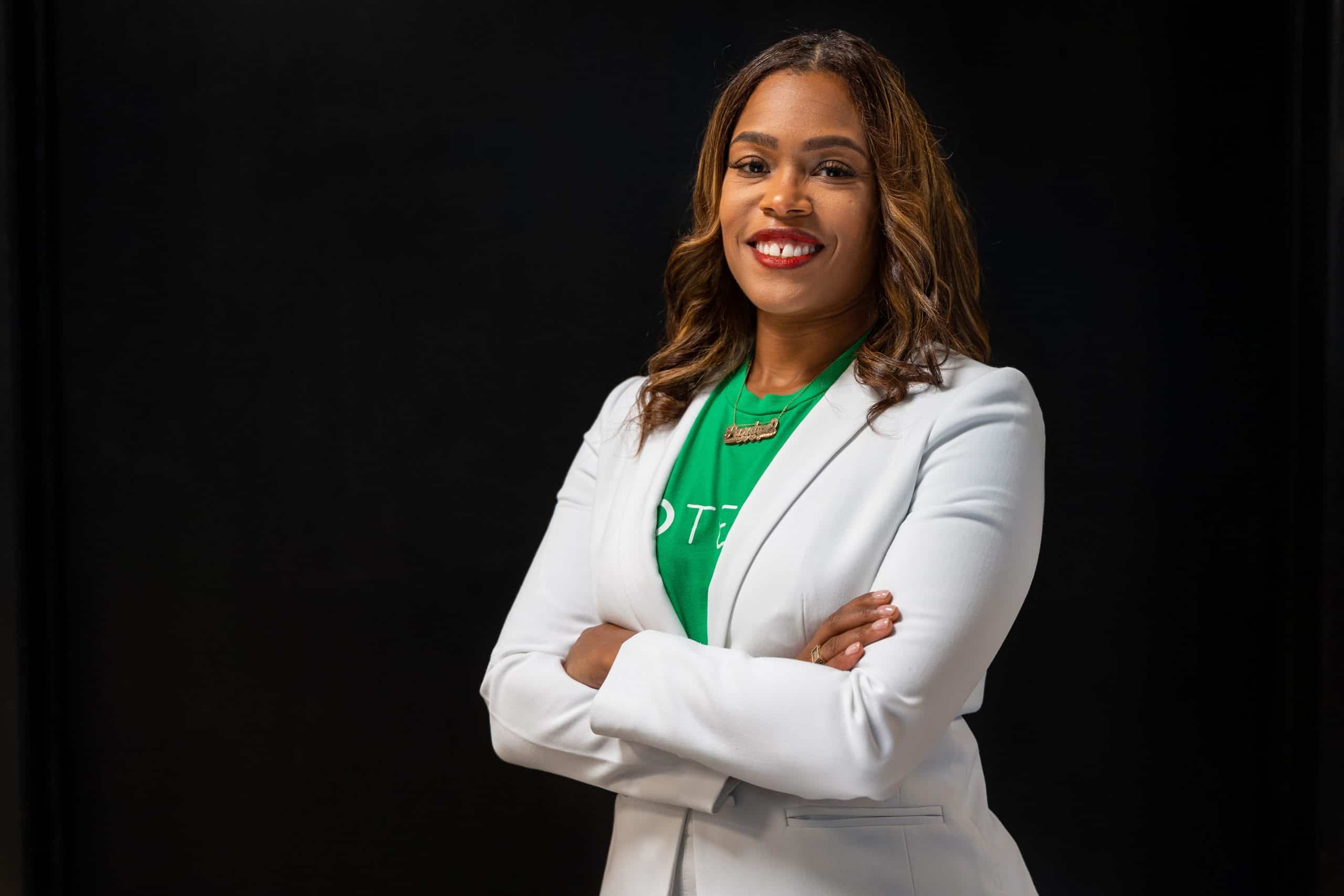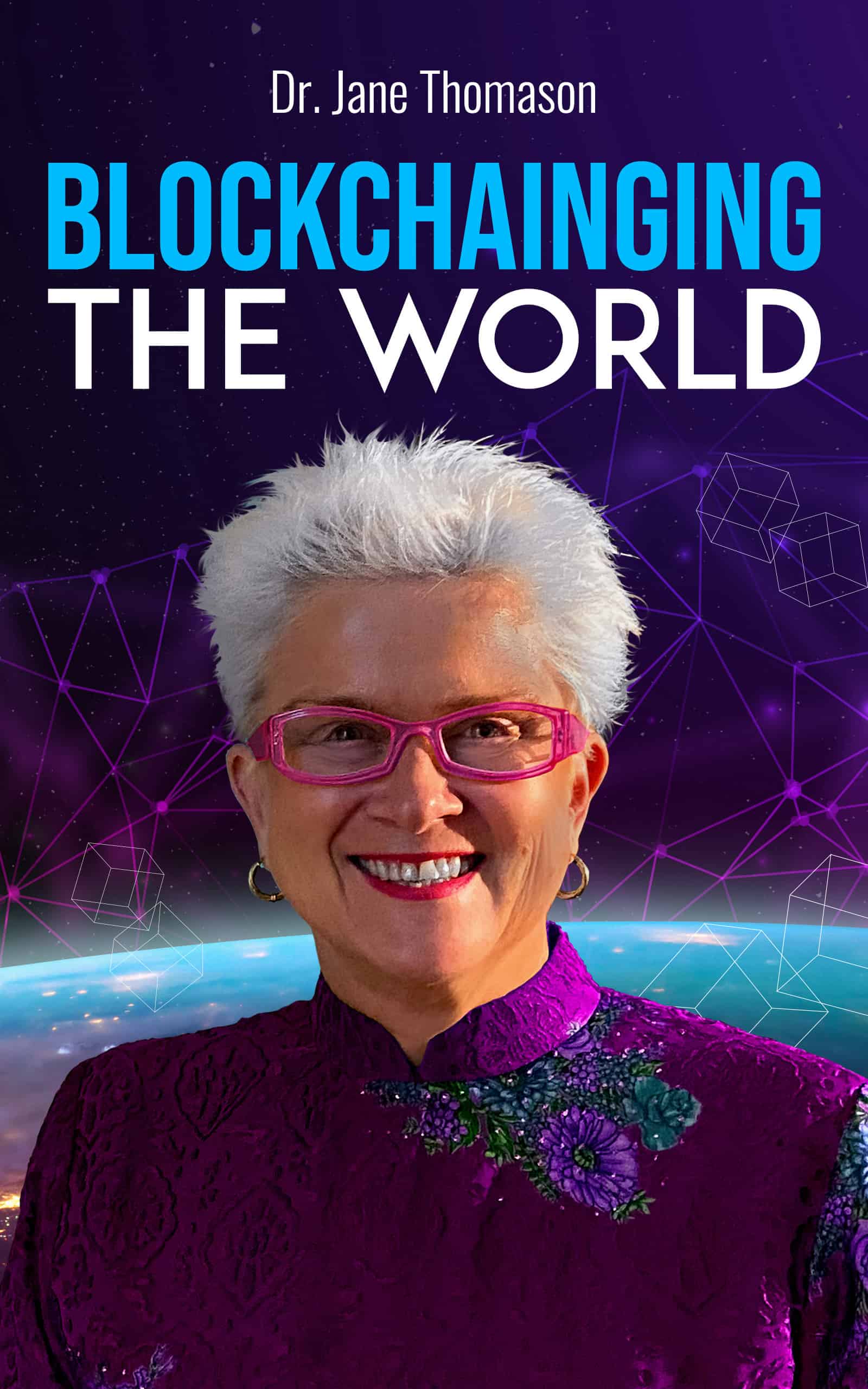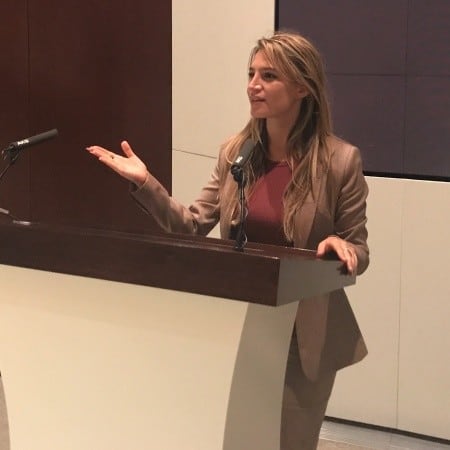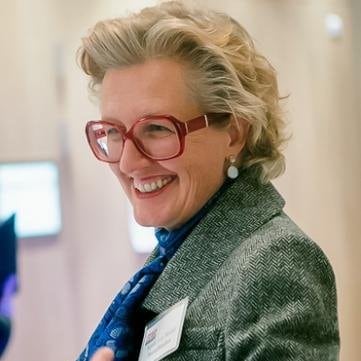International Women’s Day is on 8th March 2021. The blockchain and digital asset space have evolved in so many ways in the past ten years.
Behind this evolution have been people who many don’t know yet, but who are some of the most influential people on the planet.
Some of these people are women who play critical roles in ensuring these technologies work and get adopted by everyone.
Today is their day.
At E-Crypto News, we have dedicated this piece to them.
To the women who are within the blockchain, distributed ledger technology (DLT), cryptocurrency, digital asset, decentralized, and digital assets spaces we say this: Thank You!.
Your contributions towards the global adoption of these technologies are mind-blowing.
E-Crypto News reached out to some of these women with one simple question: What is the greatest impact blockchain technology could have in your opinion?
We would like to say a special thank you to Bridget Greenwood and The Bigger Pie for helping us source many of these incredible women.
Here are the comments of these amazing heroines and technology amazons.
Elaine Bannerman, Founder, Pan-African Tech Foundation, United Kingdom
It is no secret that technology has been the backbone of all economies during the pandemic with companies left with little option but to transform digitally in ways that would enable them to, at the minimum, stay afloat.
It appears that the technological revolution that is blockchain, was at the cusp of adoption by many industries via many enterprise solutions just before the pandemic. With the undeniable “take-over” of technology also came the explosion of the price of bitcoin and the emergence of other altcoins with prices that have seen exponential increases in the past year.
Trading in cryptocurrencies with the gains that could be made from making the right speculation captivated Africa’s youth, with some becoming millionaires in their national currencies within months- a rather remarkable development.
Cryptocurrency trading became the preoccupation of many young Africans, most of whom would otherwise have been unemployed with little hope of gainful employment. Adoption of blockchain by Africa’s leadership has been a slow process.
Perhaps, with the initial bad press that bitcoin received, African leaders have been hesitant to get on board the blockchain boat. However, blockchain is here to stay and its qualities of providence, transparency, the immutability of records, traceability of proponents of criminal acts should inform Africa’s leaders that it holds the solution to a number of Africa’s economic challenges.
Africa needs blockchain to address financial inclusion from the adoption of central bank digital currencies; reduce the staggering numbers of court cases in property and land disputes from blockchain-powered land registries for veracity records; ascertain the providence of retailed auto spare parts, as well as the providence of pharmaceutical drugs and the elimination of the counterfeit drugs industry. There are many more use cases that will be beneficial to Africa.
Teana Baker-Taylor
, General Manager, Crypto.com, United Kingdom
“Some of the most lauded benefits of Blockchain technology include greater transparency, cost savings, operational efficiencies, and enhanced security and privacy.
Looking at financial services today through these lenses, it’s easy to appreciate how much impact blockchain-based services can have on improving consumer finance.
For me, one of the most compelling benefits of blockchain is its tokenomics, which creates game-changing opportunities with programmable money, greater access to fractional investment and sovereign wealth creation, and new ways of raising capital.
Equally, as the blockchain ecosystem continues to mature, we’re starting to now see the realization of the value of decentralization.
Whilst still within their nascent stages, the recent actualization of the early expectations of how consumers might benefit from decentralized financial services, like greater yield-bearing savings and access to lending, are starting to emerge.”
Sukhi Jutla
Co-Founder & COO, MarketOrders, United Kingdom
“The greatest impact will be of mass collaboration. The trust required to do business with others will be encoded into the very fabric of the way businesses are run in the future.
No longer will we have monopolies like large banks and tech giants owning or controlling data and processes but everyone participating in the system will have a vested interest to behave in a way that is fair and transparent.
We will see ‘self- governing’ businesses become more of the norm and the power will be transferred back to the buyer making purchasing decisions.
Just as the internet democratized access to information, blockchain technology will democratize value and disburse it more freely.”
Thy-Diep Ta (“Yip”), Co-Founder Unit Ventures & DLT Talents, Germany
“In my view, the internet of value built with blockchain, tokenization, peer-to-peer transactions, and decentralization is the missing piece for the next evolution of capitalism.
With Unit Ventures, we are helping to facilitate the shift from shareholder capitalism to stakeholder capitalism, in which value created through members of different communities is allocated in a way that reduces prevailing economic inequalities that we see in society and in our human relationship with nature.
In the Unit token economy of the future, access to finance and investments as well as affordable high-quality education serve as means to “equitability” in business and society”.
 Genevieve Leveille, Principal Founder and CEO, AgriLedger, United Kingdom
Genevieve Leveille, Principal Founder and CEO, AgriLedger, United Kingdom
“The democratization power of the blockchain and or Distributed Ledger Technology is becoming more understood and can finally start its actualization.
The last few months have seen a great deal of reflection from the World at large as we have all been forced to confine ourselves to our national borders.
However, as we have evolved towards such an interconnected world we have had to rely on technology to bridge the gaps of trust that are broken when there is not the possibility to see one another “in the eyes”.
We have always realized that the internet as it was lacking the “trust” element, we are now able to envision a world where the use of technologies such as digital identity is a fabric of our lives.
Distributed Ledger Technology is based on the same fundamental technology as Identity Management and they both have the concept of private and public keys.
As many more get to understand that these advancements not only enrich our lives but also give us freedom of self, we can see where the acceptance and regulatory framework make it more accessible and we actually achieve the Fourth Industrial Revolution.”
Pandwe Gibson, Principal Founder and CEO, EcoTech Visions, United States
“Transparency and provenance in our supply chain and every other sector are some of my greatest hopes for Blockchain technology.
I have for years introduced myself as an earthling and received mixed responses- often from those who hold their identity near due to perceived privilege or power.
What they do not understand and what Blockchain will bring is a world where humans have equal access to maturation.
Trust and integrity will be achieved when our ‘survival of the fittest’ old worldview is shed. Blockchain has the opportunity to mature humanity by expanding access to information, trade, commerce, and identity.
This is also why nation-states, and other middlemen, will be slow as increased adoption will decrease arbitrary controls. Blockchain is our opportunity for equity”.
Myrtle Anne Ramos, Founder & Co-Ceo, Block Tides & Sinofy Studio, Philippines
The term “blockchain technology” typically refers to the transparent, trustless, publicly accessible ledger that allows us to securely transfer the ownership of units of value using public-key encryption and proof of work methods.
The technology uses decentralized consensus to maintain the network, which means it is not centrally controlled by a bank, corporation, or government. In fact, the larger the network grows and becomes increasingly decentralized, the more secure it becomes.
The potential for blockchain technology is not limited to bitcoin. As such, it has gained a lot of attention in a variety of industries including financial services, charities and nonprofits, the arts, and e-commerce.
Dr. Jane Thomason, Founder Supernova Data, Global Blockchain for Social Impact Advocate (at large), Australia
Blockchain and other Frontier Technologies will be an important tool for social impact globally. It is possible now, with technology to conceive of a vision where everyone can have an identity, everyone can be connected to the economic system, where farmers get fair deals for their crops, and land registration is incorruptible. It is conceivable that anyone in the world can become educated.
New forms of self regulating economies will emerge and Blockchain may be the platform for solving the global commons through global distributed autonomous communities, incentivised through token economics to collaborate, invest and work together on commons problems like climate change.
Emerging economies now have a way to access knowledge, talent, capital and to share their talent and ideas, and seek global investment in ways that are accessible to entrepreneurs and small businesses.
Advances in solar, battery, and digital commerce make it possible to imagine even the smallest village in Africa being able to produce and trade small amounts of energy.
Yes, this is an imaginary future but is a visionary future. It is possible, if people connect with intention, and purposefully shape the technological tools we have to achieve social impact at scale.
Thessy Mehrain, Co-Founder Liquality/Consensys, Founder ‘Women in Blockchain’, United States
The seismic shift happens where problems are being solved and/or something new becomes possible.
By adding technology-mediated-trust to the internet, blockchain is revolutionizing the way we digitally transact and give agency to people who couldn’t participate before.
This shift to P2P transactions away from the reliance on institutions and governments as intermediaries or permission-providing authorities, is bringing on new ways of collaboration and value sharing across genders, socio-economic and regional groups, humans, and bots.
Yes, bots! Today they are Automated Market Makers, what will they do next?
My project, Liquality, provides a wallet that lets anyone anywhere hold and swap crypto across different chains orchestrated by disposable user-owned smart contracts and without a middleman.
Technical innovation is accelerating based on open-source code, rather than black-boxing. Tokenization creates tradeable markets of goods, services, and behavior. We have barely begun.
And to fully embrace what’s possible and more importantly, minimize negative impacts, we have to build with diverse people and a broad range of experiences. Only then will we positively impact and create products and systems that work for all.
Sharon Henley
Chief Product Officer, Coincover, United Kingdom
“We are at the very beginning of the journey to truly understand the impact blockchain will have on individuals, businesses, and society.
At the heart of the journey will be the understanding that Blockchain is all about truth, trust, and disintermediation.
Once you appreciate that it’s a distributed network that allows for trusted transactions directly between two or more parties you can start to see how Blockchains allow people and things to interact in a trusted way without middlemen.
Financial services were the early adopters and it is still here that I see the greatest impact in the foreseeable future.
Blockchain, along with greater use of mobile phones, the internet, and DeFi will unlock even the basics of financial tools to over 1.7 Billion users who are currently unbanked and this will undoubtedly have a big impact.
We are already seeing projects that enable small payments and remittances to be cost-effective and get money back into the hands of those who really need it.
We are seeing microloans, credit and overdraft facilities becoming available to more than ever which in turn leads to the facilitation of savings and even small amounts of wealth accumulation can significantly drive financial freedom for all.”
Adrienne Valencia Garcia, Chief Senior Counsel, IBM Blockchain Solutions, United States
“The most exciting trend is watching companies quickly embrace blockchain technology to tackle the various supply chain related challenges we’ve seen during the pandemic and how they will leverage the benefits of trust and transparency in blockchain.
As we look to eventually re-open communities, such as with digital health passports to help individuals verify their health status in a secure manner.
Personally, I would love to see IBM’s digital health passport platform called IBM Digital Health Pass become the global standard to support our return to work, school, travel, and entertainment.
It allows individuals to control what information they share, with whom, and gives organizations the ability to tailor their response to such information, all while abiding with IBM’s Principles for Trust and Transparency in protecting client data.”
“I believe the most important impact for blockchain technology is that it makes possible tokenized economies where payments and transactions are made and secured automatically, rather than having to be intermediated by large corporations, who sit in the middle and extract large amounts of value.
To give a simple example, local communities would far more easily be able to set up social enterprises such as community pubs, shops or cafes if smart contracts and governance protocols could provide them with simple templates for automating processes and ensuring everyone got their fair share of revenue instead of having to pay specialist accountants and lawyers.
We see other examples of tokenized networks where people are rewarded for their attention or their data instead of the value being siphoned off by large tech monopolies. We are in the foothills of these developments at the moment, but the potential is huge.”
Gail Cruz-Macapagal, Country Director, DynaQuest, Philippines
Blockchain will accelerate financial inclusion by tying in proven, authenticated, and permissioned custodianship of legal digital identities into a banking & finance ecosystem.
This will be a catalyst to give banking to the once unbanked and it will be a turnkey for starting financial literacy to the once underserved economies.
The future of social disbursement on livelihood grants for microfinance and the issuance of government social subsidies will be done on a Blockchain secured architecture where digital or national IDs will be tied to a state-hosted bank.
This will in turn reduce the cost and red tape of social amelioration programs through the virtues of efficiency, transparency, and accountability.
There will be greater value creation in the use of Blockchain for financial inclusion as we are lowering the cost of admission for these livelihood programs while making the process simpler, more efficient but not compromising its integrity and security measures.
Dr. Amber Ghaddar, Founder, AllianceBlock, United Kingdom
“At its core, blockchain and crypto initially aimed to create an alternative financial system that is free of monopolies, corruption, and — controversially — regulations in a bid to democratize access to capital and payment systems.
Within a quarter of a century, once DeFi will have first adapted to and then absorbed capital markets, its full potential will be unleashed, leading to a frictionless, decentralized, self-governing system.
The revolution is here, and it is here to stay. New technologies have undeniably shifted the financial industry from a sociotechnical system — controlled through social relations — to a technosocial system — controlled through autonomous technical mechanisms.
There is a fine equilibrium to be reached between tech-based, fast-paced crypto and antiquated, regulated fiat systems. Building a bridge between the two will only benefit the system as a whole.”
Elena Obukhova, Founder & CEO at FAS | Fintech Advisory Services, Global, Argentina
Did you notice how the financial industry was reshaping? SMBs spend a few seconds on cross-border payments. Unbanked individuals are getting access to digital payments without complicated verifications.
People in countries with complicated economic situations and restrictions in the financial sector can now save and manage their money without banks.
It has been happening for a while in Argentina and Venezuela, where cryptocurrencies allow people to protect their savings from inflation or the government that had a history of taking such savings from their accounts.
Mexican bar tokenizing its future beer during the pandemic to survive the crisis. There’s a shift from the corporate-ruled world towards the community-oriented one where every participant matters and incentivized to create and contribute.
Blockchain has various important and impactful applications in supply chains, telecoms, data security, voting, healthcare, art, etc. However, many of such could have been done and are being done with centralized DLTs.
I still find cryptocurrencies and DeFi the most socially impactful blockchain application for the moment. It empowers individuals, promotes financial freedom, and increases financial inclusion.
Eman Herawy, Founder, Arabs in Blockchain, Egypt
The great impact of blockchain technology in my personal opinion would be “the choice freedom”. We as end-users finally could get back our right to choose how my data is being used, when, where or to whom I send my money with no one controlling/preventing me or forcing me to trust a certain entity. We are being used as if we are slaves in this modern world and this must be ended because we are free humans.
Zara Zamani, Head of Disruptive Technologies at Meta Bytes, Sweden
I do not think I can have a realistic view on what is the greatest impact of blockchain today just like how none of us could see our lives being so different today before the internet was adopted by mass.
However, judging it with my current knowledge and understanding, the biggest impact of blockchain is to facilitate the humanity we all wanted for so long. And how?
By eliminating filters and intermediaries and allowing peer-to-peer transactions, which means giving access to smaller players who in today’s world would never have a chance of development.
By decentralizing power and facilitating real democracy while putting every individual in charge of what they should own but they don’t today, their data.
By clearing manipulations and biases and introducing a whole new level of inclusivity and fairness.
By fighting against modern slavery with providing transparency.
By creating a real global citizen and allowing unbiased contributions to the world.
If we talk about blockchain and its applications in any industry, we only are ignoring the greatness of this technology. The greatest impact of blockchain is bringing back humanity.
Bridget Greenwood, Founder at The Bigger Pie, United Kingdom
Blockchain technology has the ability, with other emerging tech like AI, IoT, 5G etc, to enable us to build solutions that allow access to vital services in the financial, health and education sector that previously have been under served or excluded from.
Unless we make important changes, the landscape could be very dystopian, where individuals privacy and freedoms are greatly restricted and we see a huge divide by those who have, and those who have not.
The current capitalist system, where extraction of value from people and planet have ruled is not sustainable.
We need to see more collaboration to solve global, pressing problems and thus safety and prosperity for all.
This is where I see the biggest value of blockchain and the new shift in thinking about how we do business that comes with it, in shaping our future to see the societal, global, sustainable, healthy and economic developments this technology can bring.
Alexandra Levin, Esq., Founder, Womin.io, USA & Israel
While blockchain technology is not the panacea to all of society’s ills (sorry for bursting anyone’s bubble), it does have the potential to democratize many areas like access to capital, jobs, wealth creation, privacy/data control, etc., all of which bodes well particularly for traditionally underrepresented groups like women and people of color.
As a still relatively new technology, we all have the opportunity to pivot and get involved in the blockchain industry to utilize our skills, knowledge and expertise from our previous experience.
This is even more important when our society is faced with extreme challenges like natural disasters, war or pandemics.
As we have recently learned, women and people of color have disproportionately been negatively affected by the coronavirus pandemic – financially, professionally and otherwise.
What’s truly remarkable is that blockchain, in combination with other technologies like artificial intelligence for example, creates platforms like the Womin marketplace where freelancers who identify as women and employers, can interact on a peer-to-peer basis, (bypassing intermediaries), and hiring is based solely on verified skills and experience without biases based on gender, religion, disability, age or race.
I’m excited to be on this journey, growing and sharing it with others from all walks of life.
Xenia von Wedel, President of Transform Group, the leading blockchain advisory, public relations, and marketing agency in the world.
“Blockchain technology is the bridge that unites humanity to overcome division, contrary views, opinions and perceptions. It can provide solutions to many of the world’s problems, facilitating a global conversation.
Chinese philosopher Lao Tzu famously said that a journey of a thousand miles begins with a single step. What he didn’t say is that the first step is the hardest, and introducing folks to blockchain technology is how everything begins. Most people have yet to find out,”
Veronica Mihai – Investor and Mentor
My background is IT Management Consulting across a variety of industries in private and government institutions. I developed an interest in Blockchain and cryptocurrency, more specifically Bitcoin, about 6 years ago when I read Satoshi’s whitepaper.
I liked the concept and the idealistic approach to managing and owning our personal wealth and the impact this can have on propagating equality financial inclusion.
I believe that blockchain technology is still relatively new and none of us really know how it will evolve in the long term.
However, if I have to be honest, I prefer blockchain projects that use the technology in a decentralized manner to make it fair and give the users/nodes the right to make a choice. I think it is time to change the mentality of blindly doing what we are told. We have to question, scrutinize and be able to control our lives.
Many companies are looking for problems to solve and others have an idea and start looking for problems that might fit their solution. In this situation, they can have funding, big names in their team, a proper plan, the right numbers, etc.
However, when it comes to implementing that idea/solution, if they don’t know their WHY then it’s not going to work and there is a very good chance that the project will fail, or their solution will become irrelevant.
Let’s build a more decentralized world with an emphasis on human added value, let’s build solutions that keep our humanity at its center and give us the option to choose, the opportunity to make a difference.





